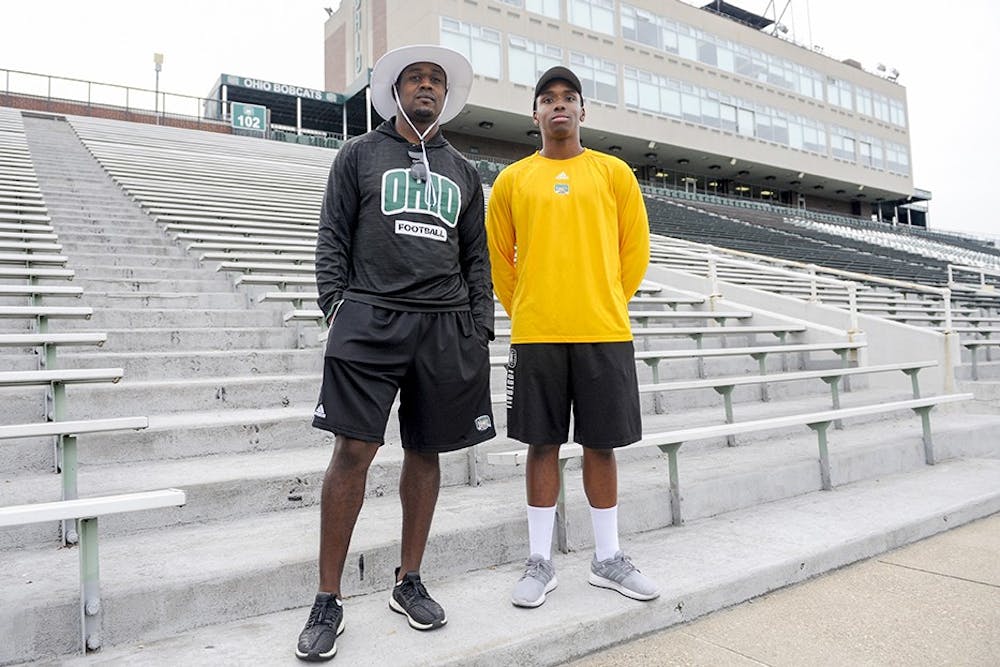The Mid-American Conference hopes to resolve a problem that's been present throughout sports history.
And that's to provide more opportunities for minorities to coach or administrate at the collegiate level.
In November 2016, the MAC announced its plan for a Diversity and Inclusion Program. The program begins this fall, with a key feature being the conference offering 25 annual internships to students who desire a career in college athletics. The athletic department from each school can choose the specific sports it wants to participate in.
The program is not geared toward football or any sport, but rather the athletic departments in the conference. The MAC will give the opportunity for each team to have two interns, and one intern will work in the conference’s office in Cleveland.
The conference values diversity and inclusion, and it prides itself on being one of the first conferences in Division I intercollegiate athletics to implement such a program.
“We seek to establish and maintain an inclusive culture that fosters equitable participation for student-athletes and career opportunities for coaches and administrators,” commissioner Dr. Jon Steinbrecher said at MAC Media Day in July.
Progress is being made in the MAC, and for Ohio and other teams in the conference, that’s significant.
The Bobcats have two minority coaches, and both are black. De’Angelo Smith, a former NFL defensive back, is the cornerbacks coach; this is his first year with the Bobcats. Dwayne Dixon is Ohio’s wide receivers coach; this is his 11th season with the team. Along with Smith and Dixon, Chris Rodgers, the team’s assistant athletic director for football operations, is black, too.
“The diversity part is very good to see us moving in that direction, giving opportunities not just to African-Americans, but guys that can make things happen and can be on an equal playing field,” Dixon said.
While there are opportunities for minority coaches and administrators, upward mobility is the goal.
That’s been a recurring issue in sports, too. Even in coaching, the glass ceiling – that barrier preventing upward mobility – is present.
Throughout Division I FBS college football in 2016, only 16 head coaches of 128 were people of color. And two of them are in the MAC. Mike Jinks and Paul Haynes are both black, and they coach at Bowling Green and Kent State, respectively.
The meaning is that too many black and minority coaches are in coordinator positions or are position coaches.
“I think you have to look at who’s hiring,” Haynes said. “Athletic directors, so we gotta start there with having more sometimes minority athletic directors to sit there and give us a chance and look at it.”
The MAC has three minority athletic directors. Allen Greene, the athletic director at Buffalo, is black. Sean Frazier at Northern Illinois is black as well, and Kathy Beauregard is the athletic director at Western Michigan.
The number of minority athletic directors in FBS college football isn’t much greater. In 2016, out of 128 athletic directors in the FBS, 13 were black, four were Latino, one was Asian and nine were white women. Additionally, Chris Plonsky runs the women’s athletic department at Texas, but she does not run men's program.
Dixon and Smith are position coaches, but that should only be a level for them to climb – not the final stop. Smith, 31, just began his coaching career with Ohio. At some point, though, he wants to be a head coach.
“You gotta put it out there and let it be known that you want to be a head coach one day,” Smith said. “When people hear that, or they read your post, they hear that I said I want to be a head coach someday. And eventually I hope that happens.”
While the MAC is looking to provide more opportunities for coaches, it is also looking to provide more opportunities for administrators.
For minority administrators who already have positions in programs, the MAC has included a mentorship program as part of its diversity and inclusion plan. The program will provide professional development opportunities and learning opportunities for administrators already in programs across the conference.
Jaylen Bannerman-Oden, a junior studying sport management with a minor in finance, is a student assistant for the Bobcats. He works with the scout team, gives signals for plays and works with game film.
Bannerman-Oden wants to do scouting after he graduates, and eventually he wants to be the director of college scouting for a professional team. His main goal is to work his way up to be a team’s president.
While he may not begin his scouting career in the MAC, he appreciates the conference’s plan.
“I’m glad to hear that I am in a conference that has something like that in place,” Bannerman-Oden said.
More opportunities are being presented to blacks and other minorities, and the difficult part can be having the opportunity present at all. But knowing one must do a good job, so much so that other minorities can continue to earn opportunities, isn’t necessarily pressuring.
For former Texas coach Charlie Strong, it’s what drove him to be better.
And for Smith, and for Dixon, and for the rest of the black and minority coaches in the MAC, it’s what drives them to be the best, too.
“We understand that we have to perform well no matter what our race is, but at the same time we know there’s a ladder to climb, so we have to be on point,” Dixon said. “There’s no slip-ups, so you gotta be focused on what you’re trying to get done, and your track record has to be impeccable.”






